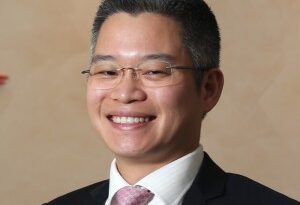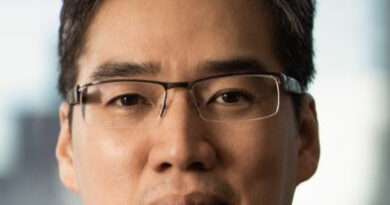Interview: Invast Global’s James Alexander on how the prime brokerage business has changed during the pandemic
HFC’s Stefan Nilsson checked in with Sydney-based James Alexander, Chief Commercial Officer of Invast Global to talk about prime brokerage and how prime brokers have been impacted by the global pandemic.
How has the prime brokerage sector in general been impacted by the pandemic? Have there been material changes to market shares and such or is it more a case of all prime brokers suffering the same issues?
We’ve certainly seen that the impact of Covid has not been shared equally among prime brokers. Even amongst the four prime brokers that we partner with, we’re hearing quite different messages. Those with strong equities and listed derivatives franchises seem to have fared better than those with capital markets units more focused on fixed income. Volatility in the equities and listed derivatives sector has been elevated since the outbreak with the VIX hitting the mid-60s in March 2020 and only really returning to more normal levels in the last few weeks. This has been accompanied by trading volumes that were on occasion best described as frenetic. Of even greater impact is the fallout from the Archegos fund situation which has highlighted some known nuances – some may say deficiencies – in the way many PBs treat the mark-to-market process for swap positions. The subsequent scrutiny by regulators is something we’re likely to be reading about for some time yet.
With both your team and many of your clients working remotely for at least parts of the past year – how have you ensured that you can maintain a good team spirit and keep building client relationships?
It hasn’t been easy, as the Hedge Funds Club champions, there is no substitute for good old-fashioned face-to-face networking. Fortunately, in Australia, we can assemble a good portion of our staff and are blessed with an office that has a large open-air section – perfect for pinball and Friday drinks. Existing client relationships have benefited from the situation as it has slowed down projects – and the associated distractions – and allowed for more dedicated time for conversation, even if over Zoom. The new client relationships have been the hardest but if you’re comfortable showing your face on every call, even if you’re not exactly in a suit and tie, you can still get there. There’s a lot less BS when your kids are circling the computer too.
With borders mainly closed and you having clients and colleagues in different countries, how difficult has it been to adjust to no international travel?
It’s a little tricky and that’s why we’ve taken the step of opening our first European office. We’ve got half a dozen employees on the ground already and will look to be hitting the market there in 2022 once all the licencing is in place.
What about risk management? Have the changes to many business routines during the pandemic forced you to also consider new types of risk to your and your clients’ businesses?
Definitely, we’ve taken a technology-based approach to the solution, establishing a virtual dealing room with sophisticated A/V connectivity so that staff can easily communicate with the dealing teams with open mic, camera and remote screen-share access so that it replicates as best as possible the atmosphere and quick communication generated in a live dealing room. There was a moment where some of the older staff had to explain the comment “this feels a lot like when we had the old hoot and holler boxes”. Apparently, millennials find the idea of a squawk-box “quaint”.
Have you seen any silver linings yet from all these enforced and unexpected changes in your business?
100%. Many of our staff, both male and female, have young families and for them in particular, the flexibility of the WFH – full time at first and more recently, part-time – has been a blessing. We’ve always aimed to be a very flexible and accommodating place to work but as we emerge from the pandemic, we’re looking forward to leading the way in flexible workplace culture. Aside from the staff, we’re finding many of our employees are actually generating output at a greater level than before as there are fewer distractions day in and day out.
Do you expect office life to return to normal once the pandemic is under control or will there be lasting changes to how work is done?
Normal, yes, the same as before, no. The key will be to find the right balance between flexibility and encouraging team-based collaboration, especially when dealing with bigger projects that touch multiple departments and require quick dialogue and feedback loops. Days or time dedicated to certain activities, and importantly where other activities are de-prioritised may become the norm. Citi’s recent announcement of “Zoom-free Fridays” is a great example of conscious avoidance of one particular activity, or addiction, with the aim of promoting another.
Among your hedge fund clients – what new investment strategies are being launched and which type of established funds have been doing well during the pandemic so far?
Corporate action arb funds have been as active as we’ve seen and seem to be doing well. The long-short equity funds have had a tough time but as always, the cycle will swing their way and we expect the tail end of 2021/2022 to see the long-short equity funds recovering AUM. We’ve also seen a significant increase over the last 24 months in more automated, API-based strategies being deployed throughout Asia. That trend is one we absolutely feel will continue, not based on a desire from managers for faster execution but so that more rules-based risk systems can be implemented, monitored and executed 24 hours a day.









